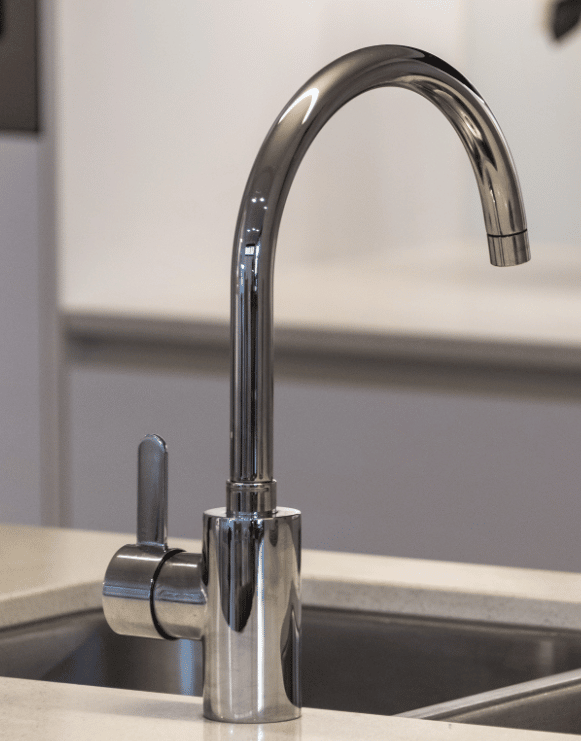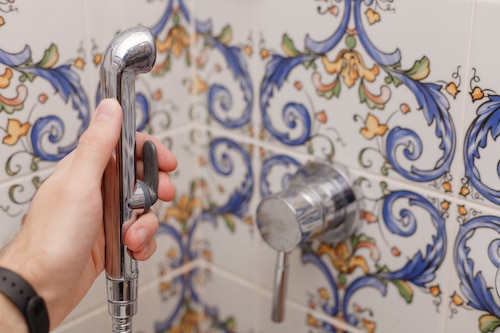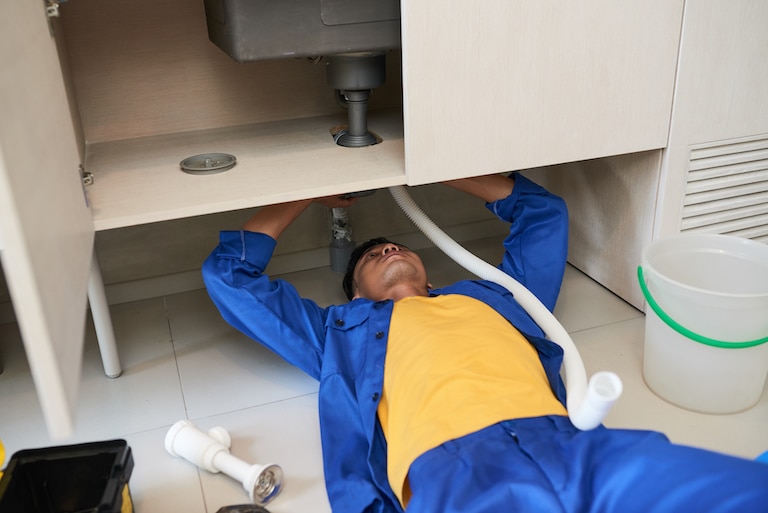Is Your Kitchen Tap Making You Sick? The Hidden Dangers of Germs!

The kitchen is the heart of the home, where we prepare and enjoy our meals. However, did you know that your trusty kitchen tap could be harbouring dangerous germs? From bacteria to viruses, these hidden contaminants can pose a serious threat to our health. In this blog post, we’ll explore the surprising ways in which your kitchen tap might be making you sick and how to protect yourself from these unseen dangers. So pull up a chair and let’s dive into the world of germs lurking in your sink!
Introduction: What Are The Risks?
For starters, exposing yourself to harmful bacteria can lead to food poisoning or other serious illnesses. And if you have young children or elderly family members living with you, they’re even more vulnerable to getting sick from germs lurking in your kitchen tap.
Fortunately, there are some simple steps you can take to protect yourself and your loved ones from these hidden dangers. Here are a few tips:
- Always wash your hands thoroughly after using the restroom and before handling food.
- Use hot water and soap to clean dishes, pots, and pans – this will help kill any harmful bacteria.
- Wipe down surfaces in your kitchen (including your tap) with a disinfectant regularly.
- If possible, install an advanced water filtration system in your home to remove contaminants from your water supply.
How Germs Can Travel Through Your Kitchen Tap?
It’s no secret that kitchens can be a breeding ground for germs. With all the food preparation that goes on, it’s easy for bacteria to spread. And one of the most common ways for germs to spread in the kitchen is through the tap.
Taps are often covered in bacteria, and if you’re not careful, those bacteria can easily transfer to your hands or food. Here’s how it happens: When you turn on the tap, water droplets fly into the air and land on everything nearby – including you. Those droplets can contain harmful bacteria that can make you sick.
What’s more, even if you don’t turn on the tap, water can still drip from the spout, leaving behind bacteria. That’s why it’s so important to clean your tap regularly – at least once a week – with a disinfectant cleaner.
So next time you’re in the kitchen, take a few moments to think about all the ways bacteria could be spreading through your tap- and take steps to protect yourself!
Methods of Prevention: Cleaning Your Tap
There are a few simple methods of prevention when it comes to cleaning your kitchen tap and keeping it free of harmful germs. The first step is to identify the type of tap you have. There are two main types of kitchen tap: those with a detachable sprayer hose and those without. If your tap has a detachable sprayer hose, it is important to remove and clean this component on a regular basis. Use a mild soap and warm water to clean the outside of the hose, as well as the inside if possible. If your kitchen tap does not have a detachable sprayer hose, you can still clean it effectively by using a soft cloth or sponge with mild soap and warm water. Be sure to wipe down the entire surface of the tap, including the handle(s), spout, and base. Rinse thoroughly with clean water and dry with a soft towel or cloth.
Evaluating Different Types of Kitchen Tap Materials
There are a few different things to take into consideration when you’re trying to decide which type of kitchen tap is right for you and your family. The first is the material the tap is made out of. You want to make sure that the material is non-porous so that it won’t absorb any bacteria or germs. Some of the most popular materials for kitchen taps are stainless steel, brass, and copper.
Another thing to consider is the finish on the kitchen tap. A lot of times, manufacturers will put a protective coating on the tap to help prevent it from tarnishing or rusting. However, some of these finishes can actually trap bacteria and germs on the surface of the tap. If you’re concerned about this, look for a kitchen tap that has a smooth, shiny finish that’s easy to clean.
Finally, you’ll want to think about how easy it is to install and maintain your kitchen tap. Some materials are more difficult to work with than others, so you’ll want to make sure that you can easily install and remove your new tap without any problems.
Summary of Cleaning Tips
If you’re like most people, your kitchen tap is one of the dirtiest places in your home. It’s a regular breeding ground for bacteria, mould, and other nasty germs.
Here are some simple tips to help keep your tap clean and germ-free:
- Wipe it down with a clean cloth or sponge after each use.
- Disinfect it regularly with a diluted bleach solution or vinegar.
- Replace the spout and aerator (the small screen at the end of the spout) every few months.
- Don’t forget to clean the handles too!
How to Choose the Right Kitchen Tap
When it comes to choosing a kitchen tap, there are many things to consider. The most important factor is finding a model that is easy to keep clean and free of germs. There are a few different ways to do this:
One way to choose a kitchen tap that is easy to clean is to look for one with a smooth surface. This will make it less likely for dirt and grime to build up on the fixture. Another thing to consider is the finish of the tap. A rougher finish will be more difficult to clean than a smooth one.
In terms of avoiding germs, it is important to choose a kitchen tap with an antibacterial coating. This will help to kill any bacteria that may come into contact with the fixture. There are also models available that have built-in filters that can remove contaminants from the water before it even reaches your sink.
When it comes to price, you will get what you pay for when you purchase a kitchen tap. Higher-end models will often offer better quality construction and materials than their cheaper counterparts. However, this does not mean that you need to spend a fortune in order to get a good quality product. There are plenty of mid-range options that will still provide excellent value for your money.
Finally, make sure to read reviews from other consumers before making your final decision as it may help you pick the right one.
Conclusion
Kitchen taps may not be given much thought, but as we’ve seen there are hidden dangers of germs in them that can make you sick. To keep your kitchen and its residents healthy it is important to keep the tap clean and replaceable when necessary. Practicing proper handwashing technique is one of the easiest ways to reduce bacteria exposure from the kitchen tap and create a safe environment for you and your family.
Seek professional plumbing assistance for your new kitchen tap installation
If you require professional help for your new kitchen tap installation and repair or if you have a plumbing emergency, please call Normz Plumbing at 01933 384 684 or contact us via email or contact form here.
You can also get in touch with us via Facebook or Instagram: @normz.plumbing
Normz Plumbing & Heating Services has years of experience installing and repairing plumbing problems for homes and businesses throughout Northamptonshire including:
We also provide complete Bathroom Fitting and Kitchen Fitting service.
Recent Post
Is Your Kitchen Tap Making You Sick? The Hidden Dangers of Germs!
Is Your Kitchen Tap Making You Sick? The Hidden Dangers…
How To Find A Water Leak: 9 Ways To Detect Leaking Water Problems Quickly And Easily
How To Find A Water Leak: 9 Ways To Detect…
What Clients Think About Us?
We guarantee your satisfaction with any plumbing service we provide. If you’re not happy, we’ll return to you and fix it exactly to your satisfaction.


